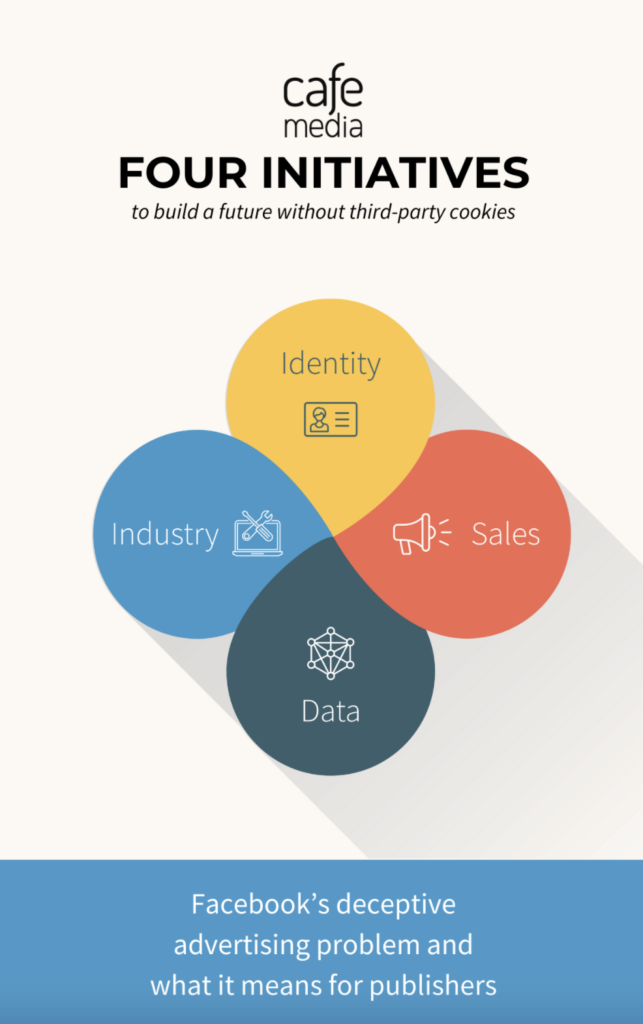Facebook’s deceptive advertising problem and what it means for publishers
Digital advertising is frequently in the spotlight, from scrutiny into how online privacy intersects with third-party cookies and other tracking and measurement tools for online ads to concerns over brands inadvertently funding disinformation through ad spend. As the second-largest outlet...

Digital advertising is frequently in the spotlight, from scrutiny into how online privacy intersects with third-party cookies and other tracking and measurement tools for online ads to concerns over brands inadvertently funding disinformation through ad spend.
As the second-largest outlet for digital ad spending, Facebook has made headlines quite a bit lately — with the latest story centering around its controversial ban of New York University’s research program, Ad Observatory.
As an independent publisher, this means that Facebook’s inherent advertising issues don’t stack up to the opportunities and value advertisers find on sites in our network.

5 key takeaways
- NYU’s research program, Ad Observatory, exposed issues with Facebook advertising — and the platform banned the team
- We’ve already solved Facebook’s high-profile problems for the publishers we work with
- The US Federal Trade Commission is taking steps to crack down on deceptive advertising online
- Impending laws and regulations need to give fair treatment to big platforms and to independent sites
- We’re monitoring things closely, are actively involved in offering advertisers safer alternatives to Facebook ads, and we will keep you informed
Setting the stage: Ad Observatory and Ad Observer
“Don’t put good ads on bad content, and don’t put bad ads on good content.”
It’s a basic responsibility of any online advertising platform.
When an advertiser runs an ad on a publisher’s site, a variety of independent services have access to make sure ‘good’ ads get placed with ‘good’ content. So, both publisher and advertiser get the info they need about page context and the ads that appear.
On Facebook, that doesn’t happen. People who read good content receive scam ads that can’t be checked or tracked. Companies end up with ads placed on content that isn’t safe for their brand without knowing it because they have no control over the context in which their Facebook ads appear.
Ad Observatory is a New York University research program, one of several independent projects making an effort to understand deceptive advertising on Facebook. The NYU research team developed a browser extension called Ad Observer to collect data on Facebook and YouTube ads from Firefox and Chrome users who’ve volunteered to participate.
Ad Observer is voluntary — and private. It’s been independently reviewed to check that it does not leak data about the user. Plus, it fills a valuable niche.
Ad Observatory provides the same visibility into Facebook ads that everyone already has with open web ads. On the open web, independent crawlers can check anything on behalf of advertisers or publishers. If a publisher site runs a problem ad, we want to know about it and fix it right away. Likewise, advertisers want the ability to spot and fix their ads showing up on an inappropriate site for their brand.
Without independent sites like Ad Observatory, advertisers and users on Facebook don’t have that kind of access to see what the Facebook ad system is actually doing behind the scenes.
Although Facebook offers a service called “Ad Library,” the NYU tools provide more and better data. For example, Ad Observatory detected some ads on “issues, elections or politics” that Facebook misclassified.
Facebook banned the NYU research team
While the open web works to detect and fix bad ad placements (and web advertisers are putting more of their budgets into direct placements on quality sites, the same as how they know they’ll find in our community), Facebook has chosen to go the other direction, attempting to conceal their persistent problems with scam ads.
Claiming that Ad Observer violated a 2020 consent decree with the Federal Trade Commission (FTC), Facebook said the plugin was doing “unauthorized data scraping” and banned the NYU research team from the site. The Ad Observer extension is still working, but the researchers have lost access to the Ad Library, CrowdTangle, and other services.
But Ad Observer doesn’t collect user data — it collects the same ad data legitimate advertisers need and companies routinely collect on the open web.
As independent web and privacy consultant Ashkan Soltani tweeted, “NYU Ad Observatory doesn’t scrape ‘user data’ but instead permits users to voluntarily donate information about only the ads they received from advertisers.”
The FTC clarified the consent decree
At the beginning of August, FTC official Samuel Levine sent a letter to Facebook CEO Mark Zuckerberg, making it clear that the consent decree does not require the platform’s Ad Observer ban.
Levine writes, “The FTC supports efforts to shed light on opaque business practices, especially around surveillance-based advertising.”
Although not all web advertising is “surveillance-based,” the FTC reminds everyone to keep consumer interests in mind when deciding which ad to place where. People want ads for products they might be interested in, but brands and content creators don’t want to participate in problematic ad practices like illegal housing discrimination.
For advertisers to have confidence in an ad medium, it needs to be open to independent checks — which Facebook ads are not.
As Senator Amy Klobuchar said on August 17, “They’ve claimed many times throughout the last few years that they want to be so transparent, and then…they’re shutting out the thing that would get the job done.”
What’s next?
Today, online advertisers have a choice:
- They can run ads in a safe, compliant environment — like the thousands of vetted and high-quality websites found in our community of publishers
- They can play things a little riskier, take chances on where their ads run
- They can send their money to Facebook or YouTube, and end up running alongside scammers
While today, web ads solve the problems the NYU team highlighted, the digital advertising industry is in flux.
When third-party cookie capabilities leave Google Chrome, we need to make sure that the open web remains a strong contender as an advertising platform.
Advertisers want to put good ads on good sites. They also need the ability to select the right audiences for their ad and receive accurate, timely reports on how their ads performed. The risks of ad money flowing to walled gardens like Facebook have never been more obvious.
Regulators at US federal and state levels (and worldwide) are paying close attention to the future of digital advertising. For example, the proposed “Social Media DATA Act” requires big platforms to give the FTC access to their targeting practices.
New policies and technologies must have a fair impact on both the walled gardens, such as Facebook and the open web — or consumers will be scammed more often. At the same time, advertisers waste their budgets in big company black boxes of bad behavior. Imagine if the city health department inspected family-owned restaurants, but big chain restaurants could keep the health inspectors out.
Thanks to our respected position in the industry, our team can join many behind-the-scenes and highly confidential conversations with experts in the law, technology, and business of web advertising.
We are actively working with the World Wide Web Consortium (W3C) and other organizations to design the next generation of web advertising. We’re working hard to fairly represent your needs and interests and help build this new ecosystem in a way that serves you, advertisers, and your readers equally well.
You can count on us for detailed updates and insights as we tackle this monumental task together.
Bio: Don Marti Don serves as our VP of Ecosystem Innovation. A proven advocate, storyteller, and problem-solver, he’s deeply familiar with all sides of the industry. Don is the only person we know who has worked on the ad servers of a major ad network, purchased advertising on the brand side of things, worked for a web browser company, written an ad blocker, and edited an ad-supported publication. He brings all of these perspectives together to work toward a future where the web serves the needs of internet users, publishers, brands, and ad tech alike
